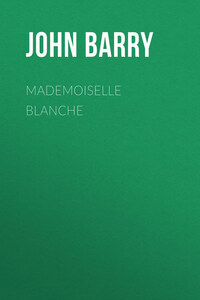"André!"
"Yes, monsieur."
The little waiter, with anxiety in his smooth, blond face, hurried to the table.
"Bring me the Soir."
André shot away, and presently returned, paper in hand.
"What is there good at the theatres, André?"
André wiped his hands in his soiled apron, and looked thoughtful.
"There's the Folies Bergères, monsieur. Dumont sings to-night."
"Oh, she tires me. Her voice is cracked."
"There's Madame Judic at the Variétés," André suggested, tentatively.
"I saw her in the last piece."
André scratched his head, and stared at the figure at the table.
"Monsieur likes the Cirque, does he not?"
Monsieur did not look up from the paper. "What's at the Cirque now, André?"
"At the Cirque Parisien? There's Mademoiselle Blanche, the acrobat. They say she's a marvel, monsieur, – and beautiful, – the most beautiful woman in Paris. She dives from the top of the building backwards – hundreds of feet."
"So you think it's really good, André?"
André nodded. Monsieur dropped the paper, paid his bill, left a little fee for the garçon, and took himself off. At the entrance he stopped and surveyed the surging crowd in the Boulevard Montmartre. He had just finished an excellent dinner with a glass of chartreuse verte; so he felt particularly complacent. As he prodded his teeth with the easy grace of the Frenchman who knows no shame of the toothpick, he tried to think out a plan for the evening. Nothing better occurred to him than André's suggestion. He was not in the mood for the Casino de Paris, nor for any of the other concert halls, nor even for the theatres. Yes, he would go to the Circus. He hadn't been there for ten days.
For years Jules Le Baron had attended the Cirque Parisien at least once a fortnight; his friends used to chaff him for his fondness for it. Those who had known him from a boy liked to remind him of his first great ambition – to be a performer on the trapeze. Though this amused him now, he had never lost his love for feats of daring and skill. Whenever he felt particularly tired from his work at the wool-house, he would go to the Circus; it refreshed him, and he fancied that it made him sleep well afterwards. His first love had been a beautiful Roumanian, who jumped through hoops of fire, landing on her velvet-caparisoned horse, without even singeing her long, blond hair. He was fifteen then, and he discovered that the lady was forty-five, though he could have sworn there was not a difference of more than three years in their ages. Since that time he had become enamoured of many of the glittering amazons of the arena, who shot through the air, or through hoops, or out of the mouths of cannons, or crossed dizzy heights on the tight-rope, or juggled with long, villainous-looking knives falling in showers into their hands.
Those episodes, however, brightened Jules Le Baron's life long before he was twenty-five. He had since had many similar experiences in the larger arena of the world. Indeed, he gloried in his susceptibility; he used to give people to understand that, though fairly successful in business, he had a very keen appreciation of the sentiments, and of all the refinements of life. To a foreigner he would have expressed this complication by saying that he was Parisian to his finger-tips. In America, where, at the age of twenty-six, he passed three wretched months, he had been appalled by the lack of sentiment among the people. Of course, as he represented there the wool-house with which he had been connected since his sixteenth year, he met chiefly business men; but even these ought to have displayed an interest in something outside their commercial routine.
It was those three months in America that gave Jules Le Baron his zest for Paris. Of course, he had always loved it; but till he left it, his love had not become self-conscious. America taught him what he had only dimly known before, that for him Paris was the only city in the world worth living in. He knew that people born away from Paris liked other cities; secretly, however, this amused him. He believed that no one, after living in Paris, could find any other place habitable. Indeed, any places, any people, any customs foreign to Paris seemed to him so droll that at the thought of some of them he often laughed aloud. America had given him things to laugh at for the rest of his life.
Of course, Jules was proud of having visited America; it gave him a delightful feeling of superiority to his friends and acquaintances at home. He always felt pleased when the English and Americans that he met in business complimented him on his English; it enabled him to say carelessly: "Oh, I just picked it up when I was in America." He really had learned very little English there; nearly all he knew had been taught him by his father, a professor of chemistry in a small school in Paris, who had spent six months in England during the siege. He had acquired there, however, a smattering of American slang; on his lips it sounded delicious. His friends in Paris thought he spoke English beautifully, and frequently referred to his talent for languages. He had given them glowing accounts of his adventures in America, and said nothing of his desolate loneliness there; so they looked upon him as a born traveller, – as, altogether, a man of remarkable qualities. But for his English and his travels, they would merely have shrugged their shoulders at the mention of his name, and dismissed him with a "








